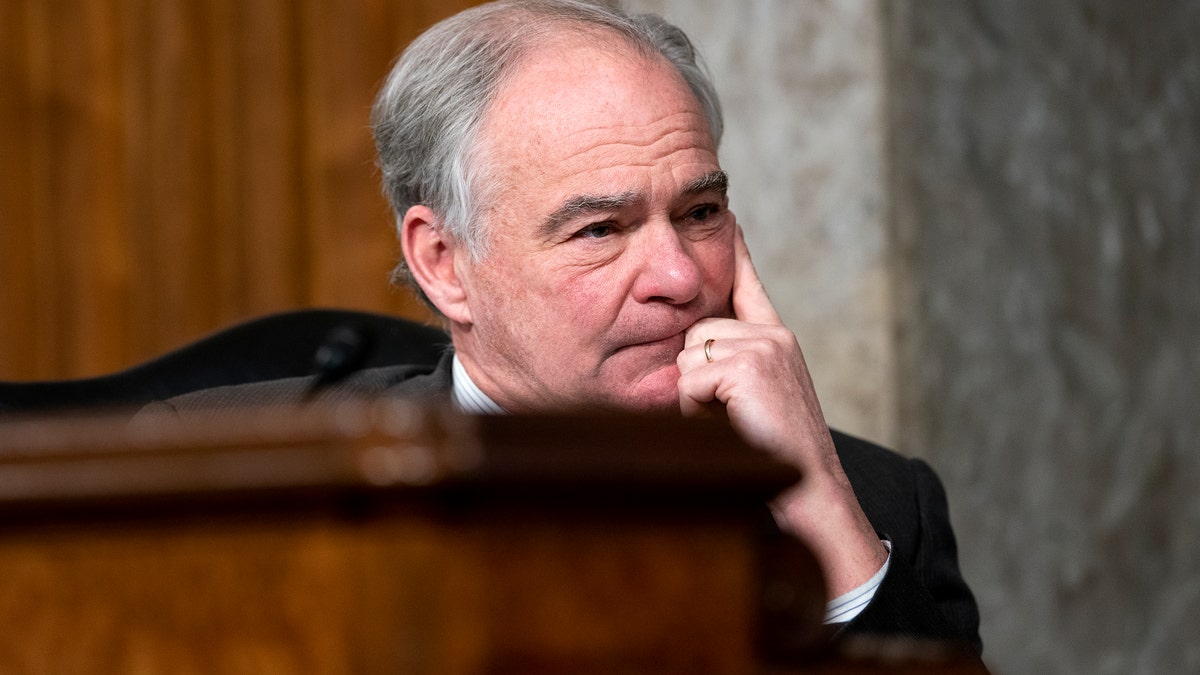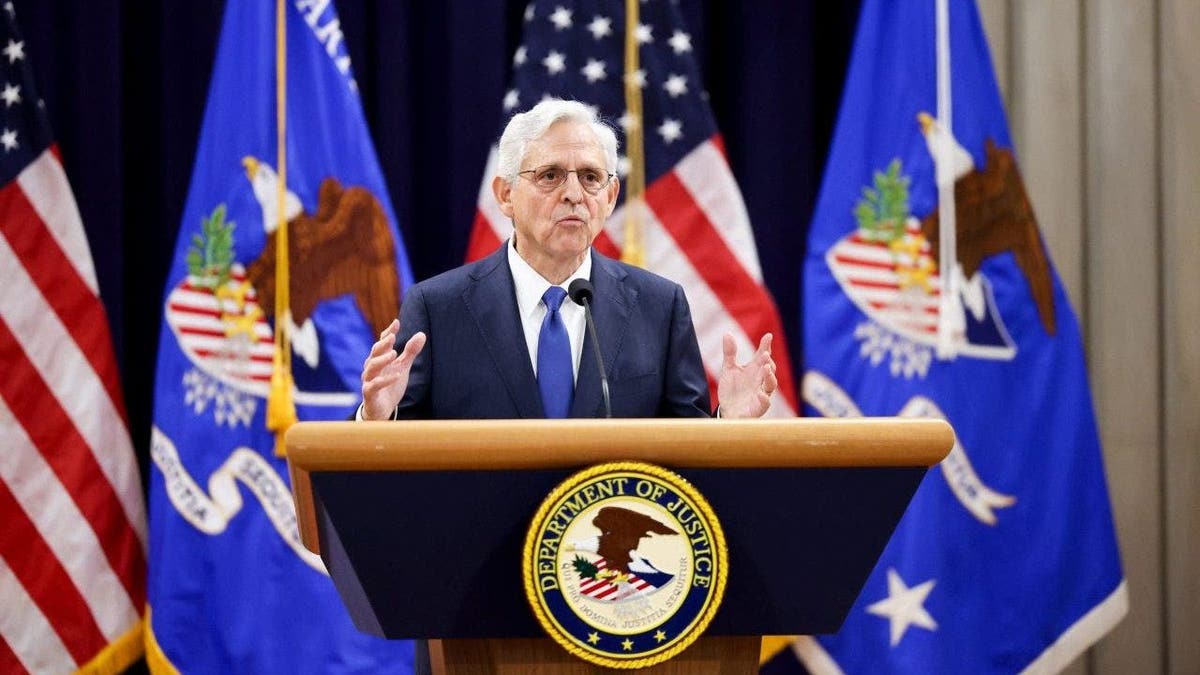The Justice Department once green-lighted the election reform law it is currently suing Virginia over, a measure aimed at removing non-citizens from the commonwealth's voter rolls, Fox News Digital has learned.
The DOJ filed suit Oct. 11 in federal court in Alexandria, alleging that the state, its Board of Elections and Elections Commissioner Susan Beals violated a federal law by carrying out an executive order from Gov. Glenn Youngkin. The order directed city and/or state officials to collect the names of individuals “unable to verify that they are citizens” from the Department of Motor Vehicles for voter registration purposes.
SPEED PRE-ELECTION LEGAL CASES IN NOW “STANDARDIZED” STRATEGY, SAYS EXPERTS
Youngkin told Fox News Digital that the order he issued in August simply followed a rule put in place in 2006 by then-Democratic Gov. Tim Kaine and approved by the DOJ. But with the November election just weeks away, the agency now says it is violating a provision of the National Voter Registration Act that requires any maintenance of voter rolls to be completed before the 90-day period preceding a election.
“[W]“We now know that Virginia's law was reviewed and expressly approved by the DOJ's Civil Rights Division,” Youngkin said. “Now, after 18 years of enforcement by Democratic and Republican governors, with just 25 days until the presidential election, the Biden-Harris DOJ Law Sues Virginia: Ensuring Virginia Voter Rolls Do Not Include of non-citizens is constitutional, it is the law in Virginia and it is common sense.
YOUNGKIN: EDUCATION IS THE BASIS OF THE AMERICAN DREAM
Youngkin's order cited Virginia Code 24.2-439, requiring government records to cancel non-citizen voter registrations deemed to have been requested under false pretenses. He also cited Virginia Code 24.2-1019, requiring clerks to immediately notify their county or city attorney of such situations.
At least 165 election-related lawsuits have already been filed across the country, with the majority focused on issues such as who should be eligible to vote, how ballots are cast and counted and how to vote. ensure election security and protect against allegations of election fraud. Legal analysts say they doubt any of these lawsuits will have a long-term impact on the 2024 election and describe the nature of the claims as fairly standard fare, especially in the more than two decades since. George W. Bush pushed back Al Gore and a mountain of legal challenges to win the 2020 presidential election.
The DOJ alleged in its lawsuit that actions resulting from the August order violated the 90-day federal deadline. However, Virginia officials maintain that their actions targeted self-reported eligibility discrepancies and did not constitute the kind of systematic purge of voter rolls that would violate the silent period provision.
An internal Richmond memo obtained by Fox News Digital claimed that the established process for removing non-citizens from voter rolls has occurred under Democratic and Republican governors since Kaine, now a senator, signed the law in 2006.
The federal silent period cited by the DOJ is “irrelevant” to Commonwealth policy, the memo said, adding that individuals also have a two-week window to assert their citizenship before being delisted. , so disqualification is not automatic.
If a person believes they have been wrongly removed from the rolls, Virginia has long offered same-day voter registration at the polls.
In official Kaine-era correspondence obtained by Fox News Digital, an official from the Virginia attorney general's office wrote to George W. Bush's Justice Department seeking approval of the new law.
Two months later, in December 2006, an official from the Civil Rights Division's voting section responded that the U.S. Attorney General “has no objection to the specific changes,” while adding that no objection of the federal government does not exclude the possibility of future injunctions against the application of the law.
CLIMATE PROTESTERS INTERRUPTE YOUNGKIN’S 9/11 SPEECH

Sen. Timothy M. Kaine, D-Va. (Greg Nash-Pool/Getty Images)
The process of removing an ineligible voter outlined by law only begins when a person applying for a driver's license or other government document certifies that they are a non-citizen.
From there, the Department of Motor Vehicles shares this information with the State Elections Department, which matches it with the county or independent city registrar.
The individual is then informed that they are not eligible and has 14 days to prove their citizenship. If they don't, they are then informed that they will be removed and are ultimately removed, the source said.
Virginia has reportedly removed more than 6,300 people from its voter rolls since signing the order.
In a statement after the suit was filed, Youngkin called the lawsuit “unprecedented” and said it was simply ensuring that a law signed in 2006 by Kaine, who is running for re-election to the U.S. Senate this year , would be followed by the counties and independents. cities.
In a statement following the DOJ's filing, Youngkin strongly defended his order.
“Americans will see this for exactly what it is: a desperate attempt to attack the legitimacy of elections in the Commonwealth, the very crucible of American democracy,” he said. “I will not stand idly by while this politically motivated action attempts to interfere in our elections, period.”
However, at the Justice Department, Assistant Attorney General for the Civil Rights Division Kristen Clarke said eliminating voter registrations closer to Election Day potentially puts qualified voters “at risk of being removed from the lists and creates a risk of confusion for the electorate.
“Congress passed the National Voter Registration Act’s silent period restriction to prevent last-minute, error-prone efforts that too often disenfranchise qualified voters,” Clarke said in a statement.
As a result of Youngkin's order, more than 1,000 registrations in two major Washington, D.C.-area counties were canceled, according to local reports.
CLICK HERE TO GET THE FOX NEWS APP

United States Attorney General Merrick Garland speaks at the Department of Justice (DOJ) in Washington, DC, USA on Thursday. The DOJ is preparing charges against Iran for its efforts to influence the 2024 election cycle. (Photographer: Ting Shen/Bloomberg via Getty Images)
Loudoun County, a once-red bastion now tinged blue due to the urban sprawl of the nation's capital, selected 98 names. Heading east along US-50, heavily Democratic Fairfax County has removed 985 and is forwarding them to the local prosecutor and Attorney General Jason Miyares to investigate any potential violations of the law, according to local ABC affiliate .
In July, Kaine reaffirmed that voting was a right reserved for American citizens.
Last week, a spokesperson for the 2016 Democratic vice presidential nominee said that “just as we want to prevent non-citizens from voting, we must prevent eligible voters from being removed from the voting rolls, particularly in a few weeks before an election.
“Senator Kaine is working to ensure that every eligible Virginian has the opportunity to vote in this crucial election.”
Meanwhile, former President Trump dismissed the lawsuit as evidence of the “weaponization” of the DOJ and praised Youngkin's “important work” to protect the veracity of voter rolls.
